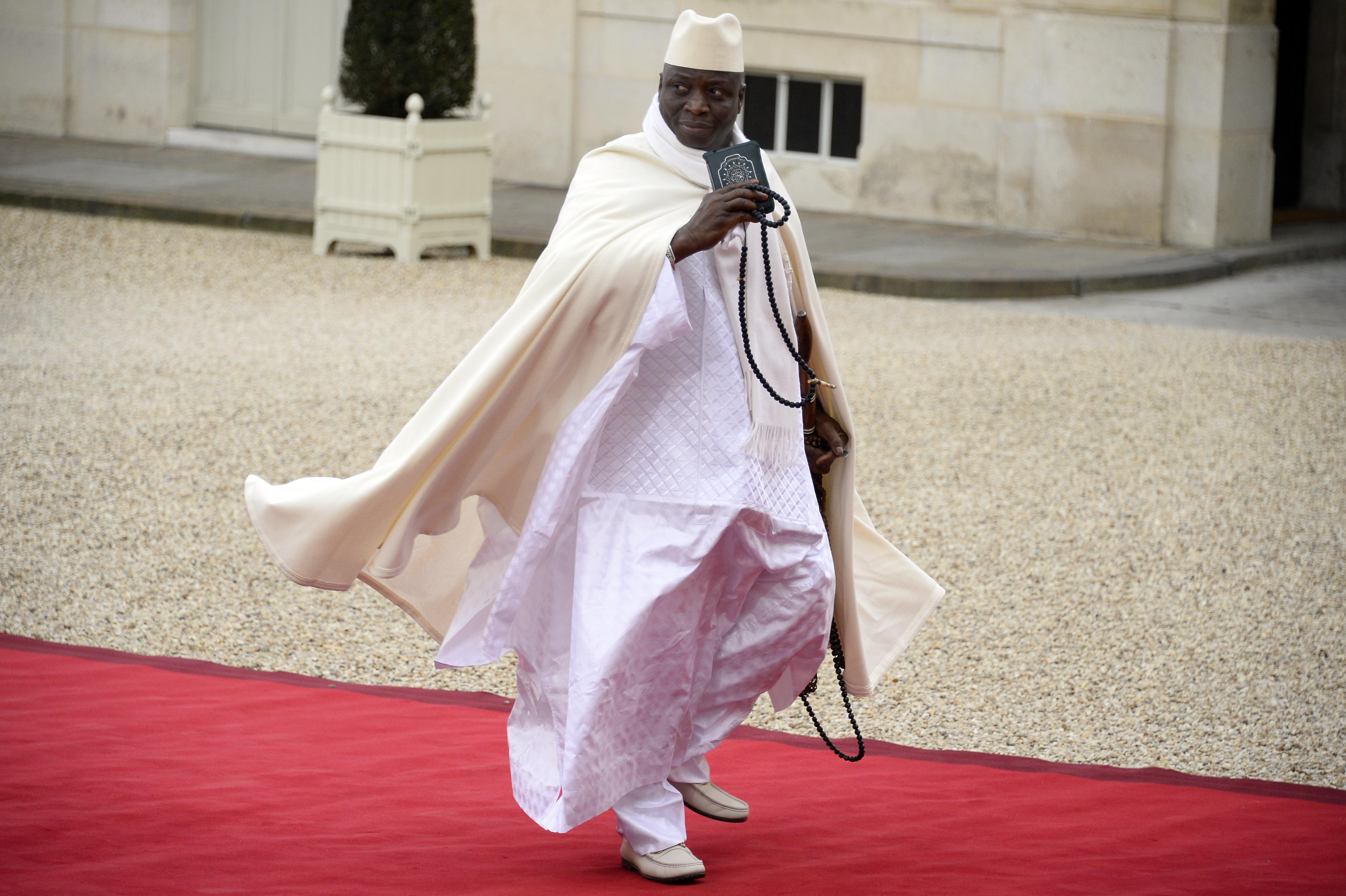When Yahya Jammeh, the Gambian dictator best known internationally for calling gay people “ungodly vermin,” promoting his own herbal cure for AIDS, and promising to rule for “one billion years,” blamed an attempted coup d’état last week on “dissidents based in the U.S., Germany and U.K.,” it was easy to dismiss it as the ramblings of a paranoid strongman. The leader of one of the world’s most repressive countries, presumably, has more than enough enemies at home.
But for once, “his Excellency Sheikh Professor Alhaji Dr. Yahya,” as he prefers to be identified, may have gotten it right.
The U.S. Justice Department on Monday filed charges against two Gambian-American men with conspiring to overthrow Jammeh’s government. Cherno Njie, a Texas businessman, allegedly bankrolled the plot involving about 10 to 12 people, most of them British. (There’s no mention of Germans in today’s press reports.) He planned to lead the country after Jammeh was overthrown. Papa Faal, a Minnesota resident and dual citizen who served in the U.S. Army in Afghanistan, allegedly joined the plot in August, angry over vote-rigging and repression in his home country.
The criminal complaint filed in a court in Minnesota on Monday (via NPR) documents an almost comical lack of preparation. Njie and Faal had originally planned to ambush Jammeh while he was traveling across the Gambia. When they found out he was out of the country, they elected to attack the presidential palace in the capital, Banjul, instead. According to the suit, the conspirators believed the president’s troops would surrender rather than die for him, but instead the troops fired back, killing most of the attackers and sending the rest fleeing.
Faal, codenamed “Fox” during the operation, escaped to Senegal, where he turned himself in at the U.S. embassy. Njie returned to the United States and was arrested upon arrival at Washington’s Dulles airport. At Faal’s house, FBI agents found a manila folder with “top secret” written in black marker on it, containing Google Earth images of Banjul. Njie’s house contained a handwritten document laying out his vision for the Gambia’s political future, including such questions as “Do you have a budget?” “How many troops do you have?” and “what is your plan after takeover?”
Coup plots against brutal West African dictators tend to attract a certain kind of overambitious adventurer. Most memorable was the misbegotten 2004 “wonga coup” attempt against Equatorial Guinea President Teodoro Obiang Nguema, a tangled mess involving British and South African mercenaries and—allegedly—Margaret Thatcher’s son. Faal, at least according to his statements, appears to have been a bit more idealistic than the wonga plotters, motivated by concern over the dire state of affairs in his country, even if he didn’t really think through the consequences of what he was getting involved in.
In case you’re wondering, it’s legal in many cases for U.S. citizens to fight in another country’s war, but plotting aggression against a nation “with whom the United States is at peace” from U.S. soil is prohibited under the Neutrality Act, which dates back to George Washington’s presidency.
America is “at peace” with the Gambia—here’s Jammeh with the Obamas at the White House during the U.S.-Africa summit last summer—but relations are pretty strained at the moment. The U.S. has been slower than some other countries to impose consequences on the Gambian government for its human rights abuses, which include a recent law imposing life sentences for “aggravated homosexuality,” but in late December, the U.S. dropped the Gambia, along with South Sudan, from a program giving African countries duty-free access to U.S. markets. After the coup attempt, a State Department spokesman made clear that the U.S. “strongly condemns any attempt to seize power through extra-constitutional means,” but even with these two in jail, Jammeh probably won’t be convinced.
He also probably won’t appreciate the historical irony in a former U.S. Army soldier trying to overthrow him. Jammeh himself took power in a coup led by junior army officers in 1994, shortly after he attended a training course at Fort McClellan in Alabama.
